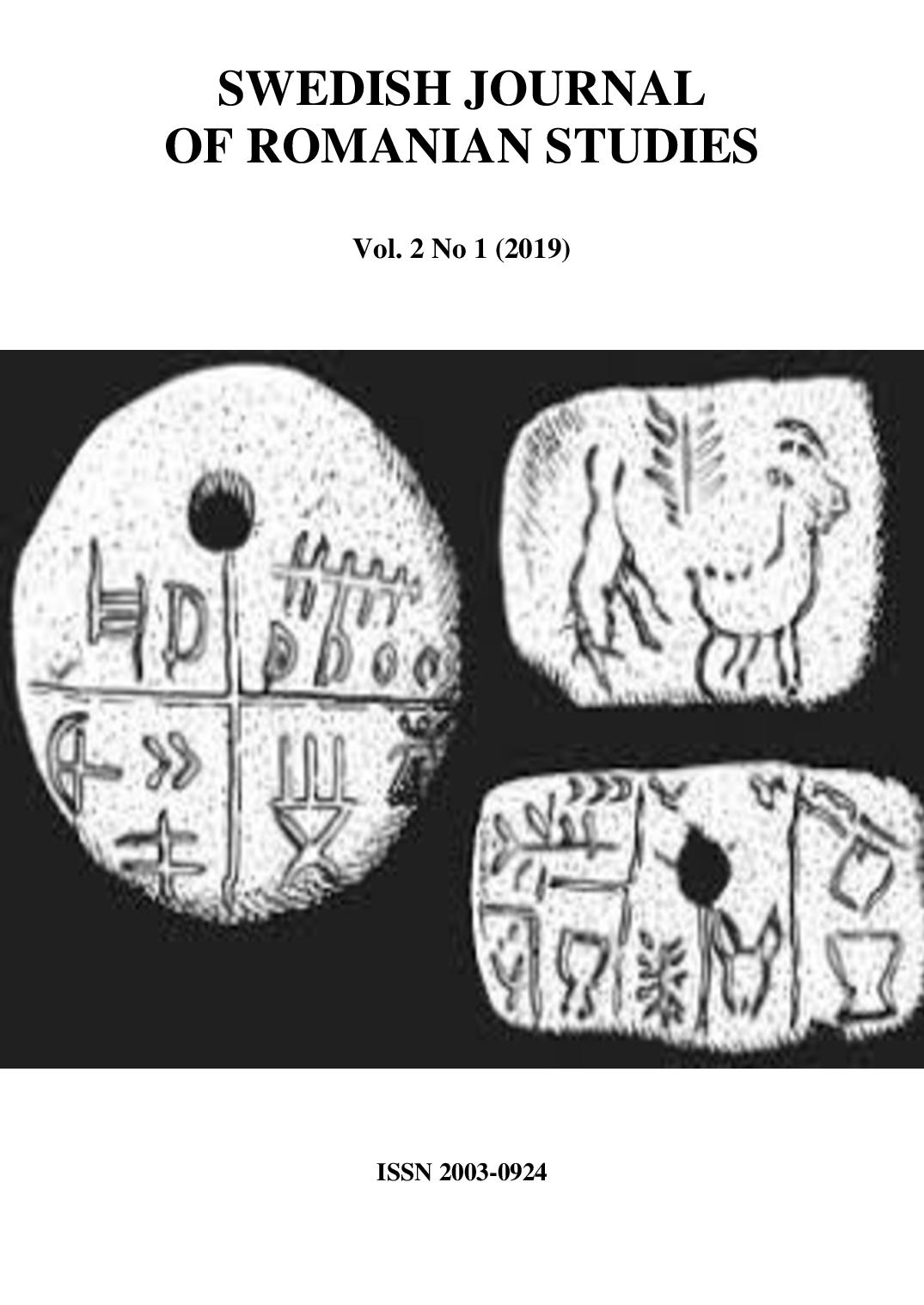Nostalgia originii la Andreï Makine, Testamentul francez și Sorin Titel, Țara îndepărtată / The nostalgia of the place of birth in Andrei Makine's French Will and in Sorin Titel's The Aloof Country
DOI:
https://doi.org/10.35824/sjrs.v2i1.19193Keywords:
exile, Makine, Titel, nostalgia, native placeAbstract
In the Middle Ages, exile meant expatriation, the prolonged absence from the native lands, one can say that a person is in exile when it is not possible to return back home. Exile involves unsettlement; the expatriated suffers from nostalgia and tries to recover his origin, the center, his home. Thinking about the past involves an idealized representation of lived history, which may have the effect of a mythical evocation of the past. The nostalgia is one of the central ideas of the novels of the Russian writer Andreï Makine, who has hardly built his identity as a Russian writer of French, his literary beginnings being not simple. The theme of the nostalgia and the parallel between two different worlds are constantly found in Makine's novels, and in The French Will it gets a special note. Andreï Makine says in interviews that he chose to write in French, but his country of origin is always in his soul. Another writer – Romanian this time – in whose novels we find the nostalgia of origins is Sorin Titel, who reveals an unusual world, Banat, where the writer was born. The estrangement from Banat has beneficial consequences in almost all respects. Established in Bucharest, the author has the nostalgia of Banat and transforms it into an epic projection, reinvents Banat. The removal from the places of origin, the distancing, the alienation, are mandatory conditions of the pilgrimage to himself, for only by being far from Banat he could reinvent him, using the memories of his childhood. Even the title of his first book with which he begins the recuperation is enlightening: The Aloof Country, signifying both the Banat, geographically, and the age of childhood, at a symbolic level. This is the case with the two writers, Andreï Makine and Sorin Titel, writers who being far away from their native places, have fictionally translated what they feel for home - Russia and Banat.
References
Bărbuceanu, I. (2016). Imagini ale Rusiei la Andreï Makine / Images of Russia in Andreï Makine′s Work, București: Editura Universității.
Buciu, M. V. (2007). Zece prozatori exemplari (perioada comunistă) / Ten Paradigmatic Novelists (the Communist Period), București: Editura EuroPress.
Crohmălniceanu, O. S. (1984). Un scriitor de rasă / A Purebred Writer, Caiete critice, nr. 1-2/1984.
Deciu, A. (2008). „Frontiera și retorica exilului” / „The Border and the Rhetoric of the Exile”, în Romanița Constantinescu (coord.), Identitate de frontieră în Europa lărgită / Border Identity in Enlarged Europe, Iași: Editura Polirom.
Eco, U. (1997). Șase plimbări prin pădurea narativă / Six Walks through the Narrative Forest, Constanța: Editura Pontica.
Jankélévitch, V. (1998). Ireversibilul și nostalgia / The Irreversible and the Nostalgia, București: Editura Univers Enciclopedic.
Makine, A. (2002). Testamentul francez / The French Will, traducere de Virginia Baciu, Iași: Editura Polirom.
Rachieru, A. D. (1995). Scriitorul și umbra / The Writer and the Shadow, Reșița: Editura Timpul.
Roșca, E. (2000). Sorin Titel. Ciclul bănățean / Sorin Titel. The Banat Cycle, București: Ed. Univers.
Said, E. W. (2000). Reflections on Exile and Other Essays, Harvard University Press.
Titel, S. (1974). Țara îndepărtată / The Aloof Country, București: Ed. Eminescu.
Ungureanu, C. (2003). Geografia literaturii române, azi / The Geography of the Romanian Literature, Today, vol. IV-Banatul, Pitești: Ed. Paralela 45.
Vighi, D. (2000). Sorin Titel: monografie / Sorin Titel: Monogaphy, Brașov: Ed. Aula.
Woodward, K. (2002). Understanding Identity, Londra: Arnold.
Surse electronice:
Fairweather, N. (1999).Interview: Andrei Makine – Trough the Iron Curtain to Paris. In Independent, 31 ianuarie 1999, accesibil la http://www.independent.co.uk/arts-entertainment/interview-andrei-makine-through-the-iron-curtain-to-paris-1077329.html, vizualizat la 20 iunie 2017 (traducerea mea).
Bronnikov, V. (2010). Interview: Andrei Makine Russian French writer, accesibil la https://www.youtube.com/watch?v=PLY0M8gpyVA, accesat în data de 26 iunie 2017 (traducerea mea).
Moltoni, M. (2013). Interviu Andrei Makine – Interviewing Andrei Makine, Russian born French Author. Interviu acordat Mariei Moltoni, de la L′ItaloEuropeo, publicat în data de 29 aprilie 2013, accesibil la adresa http://www.italoeuropeo.com/interviews/1352-interviewing-andrei-makine-russian-born-french-author, accesat la 28 iunie 2017 (traducerea mea).
Vlădăreanu, E. (2013). Interviu cu Andrei Makine: „Dacă într-o literatură există mari poeți și prozatori, atunci avem de-a face cu o limbă bine lucrată”, în „Suplimentul de cultură”, Anul IX, nr. 421, 7-13 decembrie 2013, pp. 8-9, accesibil la: http://www.suplimentuldecultura.ro/index.php/continutArticolNrIdent/Interviu/8929, accesat la 30 iunie 2017.
Downloads
Published
How to Cite
Issue
Section
License
Copyright (c) 2019 Simina Pîrvu

This work is licensed under a Creative Commons Attribution-NonCommercial 4.0 International License.
Authors who publish with this journal agree to the following terms:
a. Authors retain copyright and grant the journal right of first publication with the work simultaneously licensed under a Creative Commons Attribution-NonCommercial 4.0 International License that allows others to share the work with an acknowledgement of the work's authorship and initial publication in this journal.
b. Authors are able to enter into separate, additional contractual arrangements for the non-exclusive distribution of the journal's published version of the work (e.g., post it to an institutional repository or publish it in a book), with an acknowledgement of its initial publication in this journal.
c. Authors are permitted and encouraged to post their work online (e.g., in institutional repositories or on their website) prior to and during the submission process, as it can lead to productive exchanges, as well as earlier and greater citation of published work (See The Effect of Open Access).

